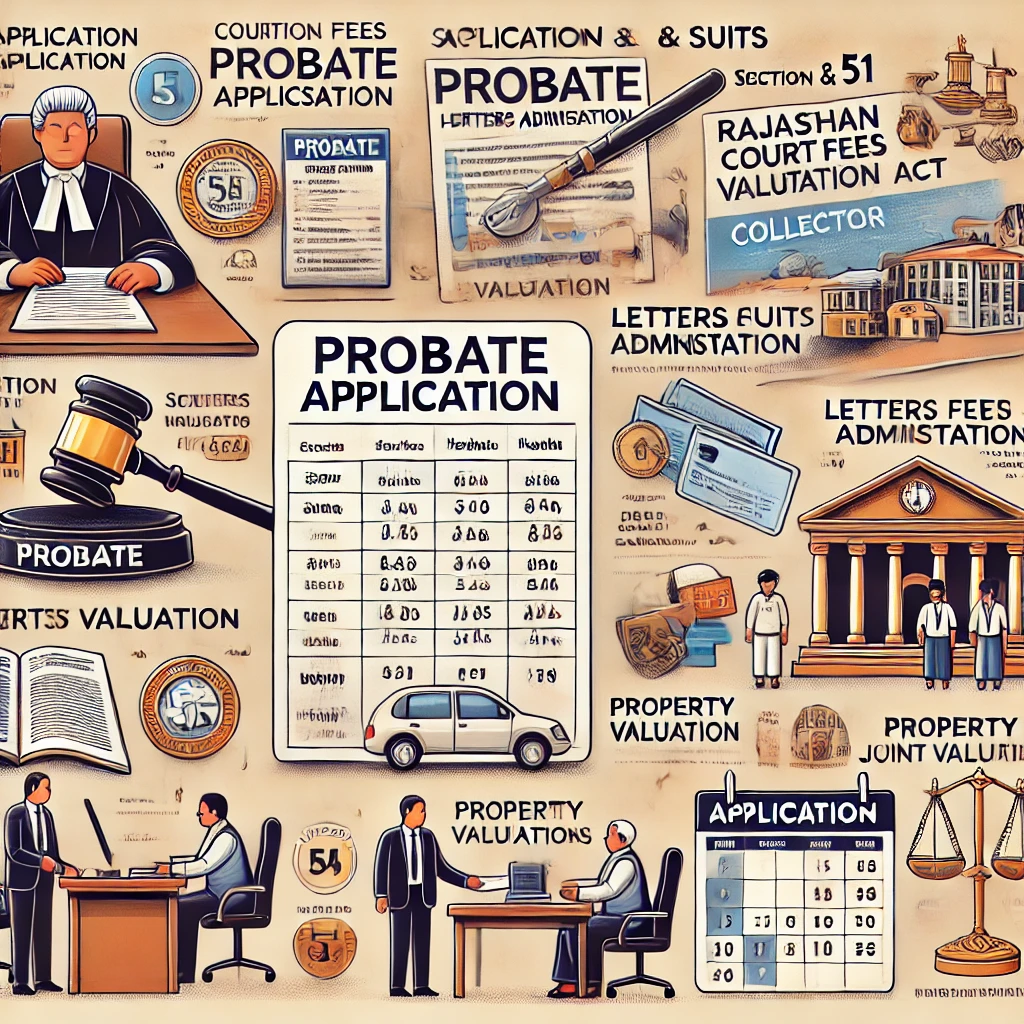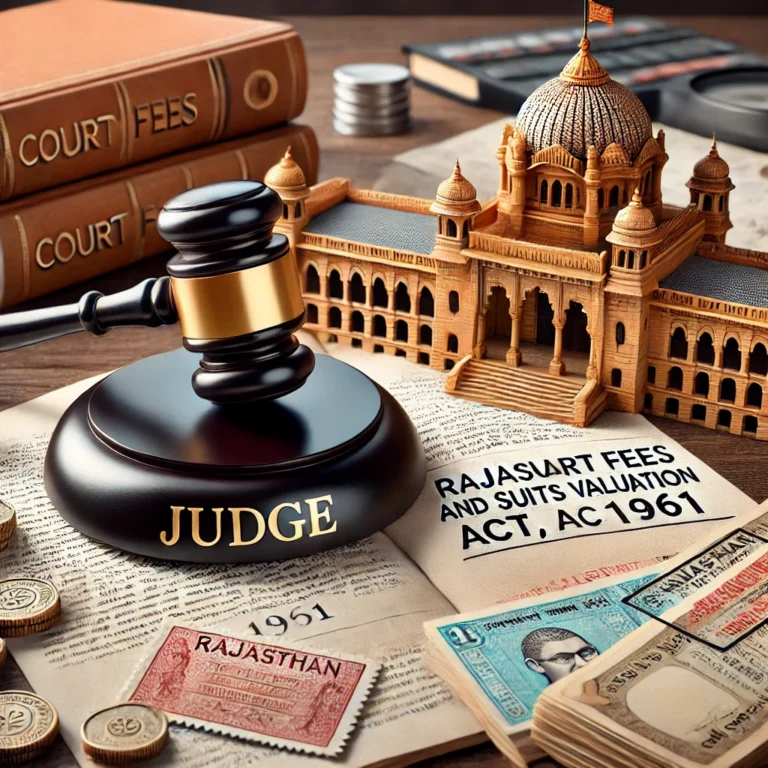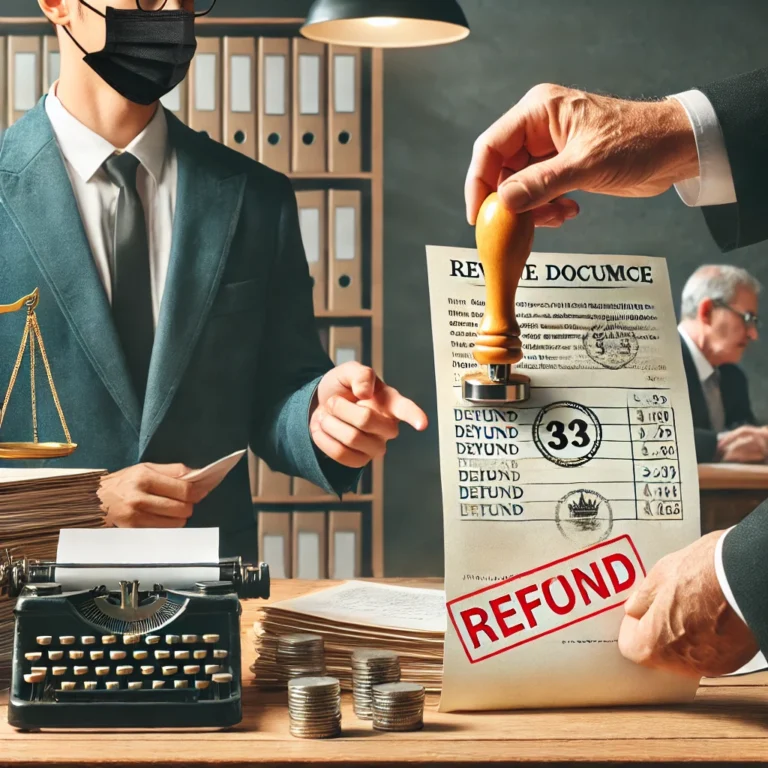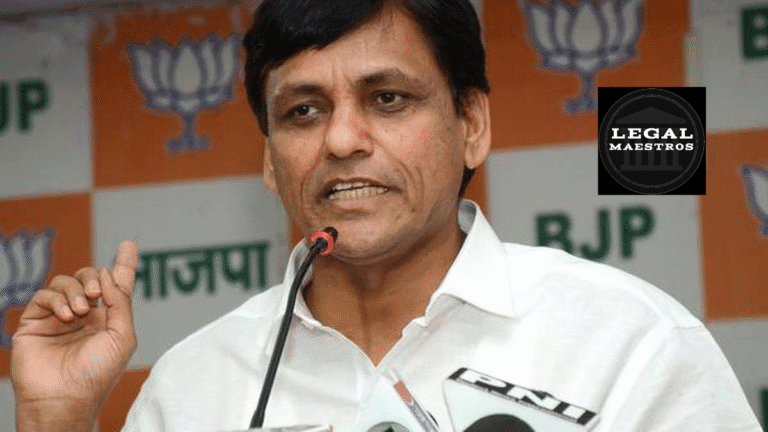
Application and Fees for Probate or Letters of Administration (Section 50 & 51 of The Rajasthan Court Fees and Suits Valuation Act, 1961)
When someone dies, his legal heirs have to go through a formal procedure to transfer the ownership of his estate. This is achieved by making an application for probate (in case the deceased had left behind a will) or letters of administration (in case there is no will). The process and fees are described in sections 50 and 51 of The Rajasthan Court Fees and Suits Valuation Act, 1961.
Application Process for Probate or Letters of Administration (Section 50)
For applying for probate or letters of administration, the applicant is required to file a valuation of the estate of the deceased person in duplicate. The valuation should be in the format provided in Part I of Schedule III of the Act.
After submitting the application, the court sends a copy of the application and valuation to the Collector of the district in which the estate lies. If the estate is scattered in more than one district, the application is transmitted to the Collector of the district where the estate has the maximum value.
For More Updates & Regular Notes Join Our Whats App Group (https://chat.whatsapp.com/DkucckgAEJbCtXwXr2yIt0) and Telegram Group ( https://t.me/legalmaestroeducators ) contact@legalmaestros.com.
For instance, if the deceased person had properties in Jaipur, Jodhpur, and Udaipur, and the most valuable property was in Jaipur, then the Collector of Jaipur would be given the information. It assists the government in confirming the value of the estate for taxation and other legal reasons.
For More Updates & Regular Notes Join Our Whats App Group (https://chat.whatsapp.com/DkucckgAEJbCtXwXr2yIt0) and Telegram Group ( https://t.me/legalmaestroeducators )
Fee for Probate or Letters of Administration (Section 51)
There is a charge that has to be paid prior to the grant of probate or letters of administration. The charge is calculated according to the market value of the estate and in accordance with the rates provided for in Article 6 of Schedule I.
If the application is made within a year after the death of the individual, the fee is assessed as a percentage of the value of the estate as at the date of death. But if the application is made more than one year after the death, then the fee is ascertained as at the time of application.
For instance, if someone passes away in 2023 and his or her beneficiaries file for probate in 2024, the value of the estate can have grown. In such an event, the fee will be calculated based on the 2024 market value instead of the 2023 value.
Exemptions and Special Cases
The Act makes some exceptions in which no fee is payable. Where the property is held in trust and does not give rise to a beneficial interest in the deceased, no fee is payable.
Where a member of a joint Hindu family governed by the Mitakshara law makes an application for probate or letters of administration, they are required to pay a fee according to the share of property the deceased would have got if the family property had been partitioned at the time of his death.
For instance, in case of a person who was eligible for one-fourth of a joint family property which is worth ₹40 lakhs, the fee would be computed only on ₹10 lakhs (their share).
How the Fee is Calculated
With some exceptions, the fee is computed based on deductions made from the estate’s total value. The value of items cataloged in Annexure B of Schedule III is subtracted from the estate’s total value. The applicant may not deduct funeral expenses, debts, or mortgage payments related to other parts of the estate should probate be sought only for a part of it.
If a succession certificate under Part X of the Indian Succession Act, 1925, has already been granted for part of the estate, the probate fee is reduced by the amount already paid for that certificate.
For example, if an estate consists of land, jewelry, and bank deposits, but the applicant seeks probate only for the land, they cannot deduct debts related to the jewelry or bank deposits when calculating the probate fee.
If the deceased had the power to distribute a property through a will, that property’s value must be included when computing the fee.
These rules ensure that estate transfers happen legally and fairly while ensuring that the government receives the appropriate revenue.






